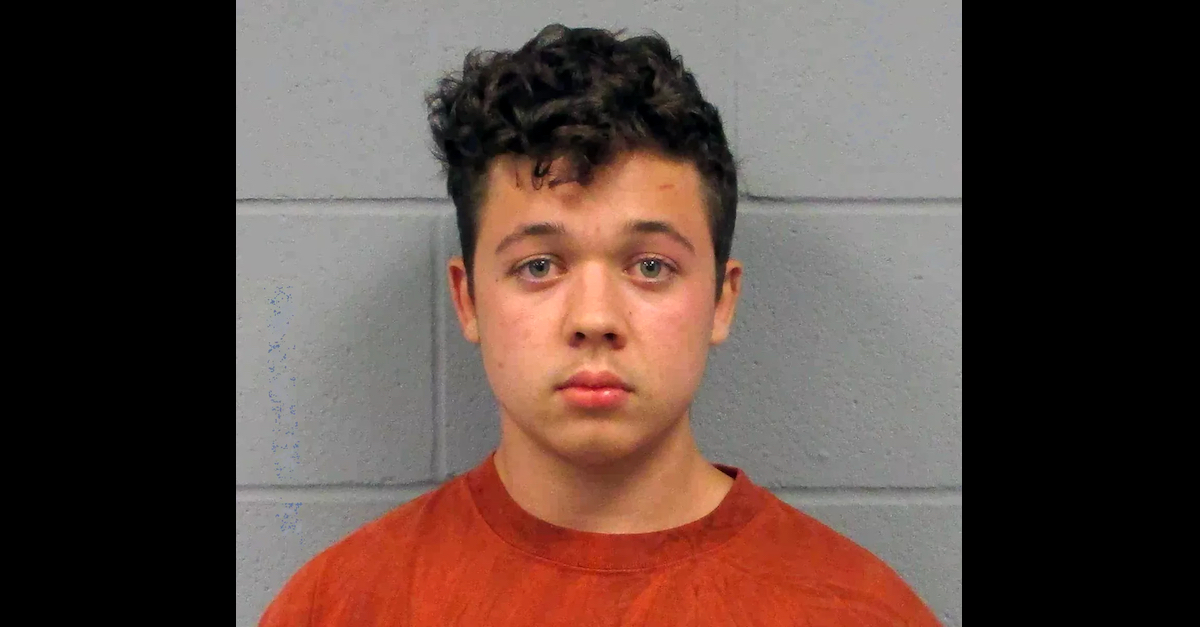
In this Aug. 26, 2020, photo released by the Antioch Police Department is Kyle Rittenhouse in Antioch, Ill. Rittenhouse is accused of killing two protesters days after Jacob Blake was shot by police in Kenosha, Wis.
Attorneys for admitted Kenosha killer Kyle Rittenhouse caused quite a row in some recent court filings. Now, the Kenosha Police Department is telling the public they are in no way responsible for any of the defense’s eyebrow-raising claims.
Recall: On Wednesday, Kenosha County Assistant District Attorney Thomas Binger asked for a bond increase and an arrest warrant after authorities were unable to locate the now-18-year-old who killed two people and injured a third during a racial justice protest last year.
In response, Rittenhouse’s attorney Mark Richards filed a motion that claimed a local police captain instructed the defense to lie about where he was staying on a pretrial bond document.
To hear the defense say it, “a high-ranking member of the Kenosha Police Department” instructed former Rittenhouse lawyer John Pierce “to provide the address of the Rittenhouse Safe House because of the numerous threats made against Kyle and his family.”
Pierce also supplied an affidavit making that claim.
“While I was completing this form, I was approached by a Kenosha Police Department Captain, who offered his assistance,” Pierce continued [emphasis in original]. “I asked the Kenosha Police Captain what address to put on the form. The Kenosha Police Captain told me that I ‘absolutely should not‘ provide the address of the physical location of the Rittenhouse Safe House on the form, but to instead provide his home address in Antioch, Illinois.”
The Kenosha Police claim that allegation simply isn’t true.
“A Kenosha Police Captain did have a brief conversation with Mr. Pierce, regarding security concerns raised by Mr. Pierce, surrounding the Kyle Rittenhouse release from custody,” Kenosha police said in a press release issued Thursday. “The conversation did not include instructions about how to fill out paperwork.”
“It is the responsibility of the defendant and his/her representation to complete bond paperwork completely and accurately,” the department continued. “It is the further responsibility of the defendant to comply with conditions of bond.”
Documents originally provided to Law&Crime by Richards did not contain the name of the police officer in question but later court documents filed by the defense identified the alleged culprit as one “Captain Tim Schaal.”
The Kenosha Department took issue with that claim as well.
“On November 20, 2020 Tim Schaal was a Lieutenant,” the department said. “On November 20, 2020 Lieutenant Tim Schaal was on a regularly scheduled day off and had no contact with Mr. Pierce.”
Presented with push back from the Kenosha Police Department, Rittenhouse’s current attorney declined to comment further.
“I litigate in court not the media,” Richards said.
The local district attorney also responded to the defense’s allegations about the police, filing a reply brief to support their original motion to increase bond. Law&Crime obtained a copy of that filing from the Kenosha County District Attorney’s office.
From that motion:
[T]he defendant, via an Affidavit of Attorney John Pierce, asserts that a Kenosha Police Department Captain told him that he did not need to put the address of the “safe house” on the bond but could instead put down “his home address in Antioch, Illinois.” Affidavit of John Pierce, However, as the defendant admits, that was not even his “home address”at the time. But more importantly, neither a Kenosha Police Department Captain nor Attorney Pierce have the authority to unilaterally modify a Court order. The proper procedure for modifying bond is to file a motion. Indeed, this is the second time that the State has followed that procedure in this case. In fact, the State, by Assistant District Attorney Thomas C. Binger, specifically advised the defense that they would need to file a motion with the Court if they wanted to keep the defendant’s address out of the public record (unless they could demonstrate a specific, tangible and imminent threat to the defendant’s safety).
“The defense has filed no such motion,” Binger continued before alleging: “Instead, the defendant has unilaterally and deliberately violated the Court’s order.”
The state’s Thursday motion went on to address the defense’s claims of purported threats to Rittenhouse’s safety—and summarily dismissed them—arguing that a lone email offered in support of the claimed threat was simply not enough to sustain a request sealing Rittenhouse’s address.
“[T]he defense has not demonstrated a specific, tangible and imminent threat to the defendant that would justify withholding his address from the public,” Binger wrote. “While the defense asserts that the defendant has received various threats, the only actual communication that has been submitted to the Court is an email.”
The email in question graphically predicts that Rittenhouse will be sexually assaulted if he is imprisoned. The prosecution said that there was no indication of an imminent threat.
“That email, sent to Attorney Mark Richards, discusses what might happen to the defendant in prison after he is convicted,” Binger goes on. “The email is from ‘mlucky99,’ whose real name is not known. There is no indication if this person is from Wisconsin or Wyoming or Western Samoa. The sender does not make any actual threat to the defendant but merely discusses what others might do to him in prison. This is hardly a specific, tangible and imminent threat.”
The prosecution wants Rittenhouse’s bond increased by $200,000. Their Thursday filing did not mention the arrest warrant requested on Wednesday.
Law&Crime repeatedly reached out to Pierce for comment on this article but no response was forthcoming at the time of publication.
[image via Kenosha Police Department]